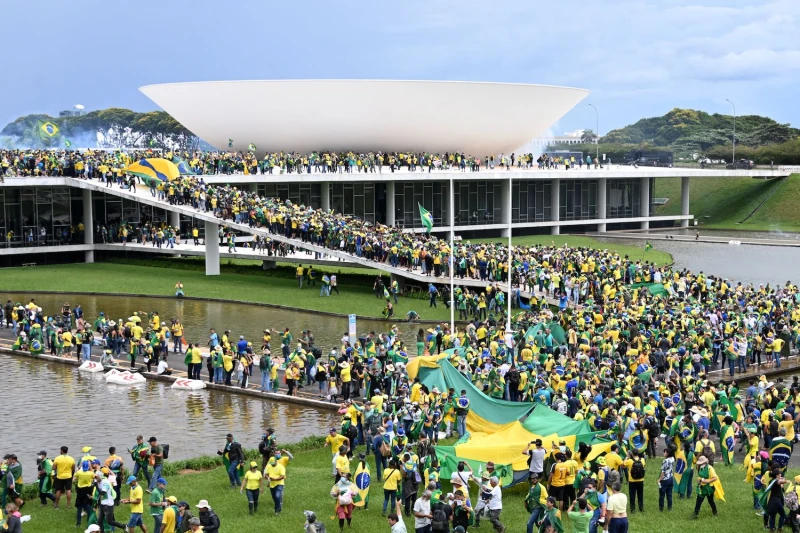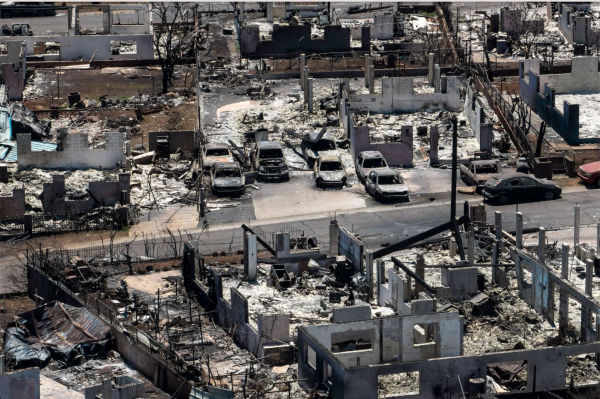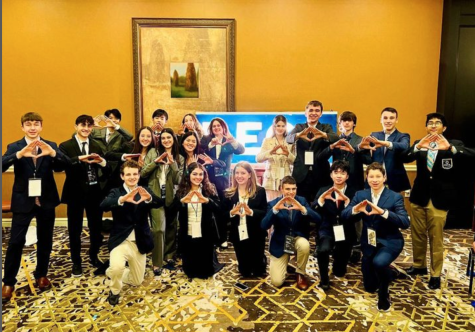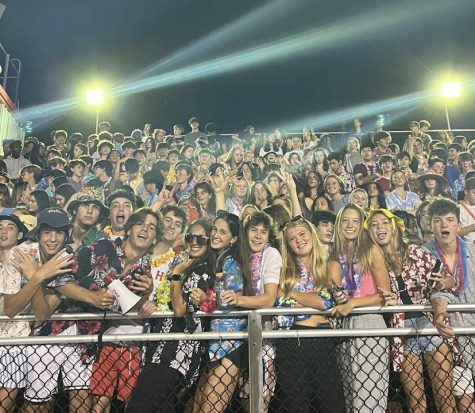What Led to Brazil’s January 6th…on the 8th
Last October, Jair Bolsonaro and Luiz Inácio Lula da Silva, commonly known as Lula, faced off in the 2022 presidential election in Brazil, a tumultuous battle for power which would dictate the future of the largest economy and democracy in Latin America.
Luiz Inácio Lula da Silva had previously served as Brazil’s president, from January 1st, 2003 to December 31st, 2010. Like in the United States, Brazilian presidents can only serve two consecutive terms. However, while the United States forbids a person from serving more than two terms, Brazil allows a third term as long as there are no more than two consecutive ones. Lula, for example, was not able to run again in 2010 because of his previous wins in 2002 and 2006, but was eligible to run in any election after that. However, in the 2014 election, Lula had to overcome a complicated circumstance, which arose when his successor and former Chief of Staff, Dilma Rousseff, ran and won the election, but went on to be removed from office in 2016. The messy impeachment, and his 2018 arrest on charges of corruption, reflected poorly on Lula and his party, the leftist Worker’s Party.
Jair Bolsonaro also entered the 2022 campaign with political baggage. Since entering office in 2019, Bolsonaro repeatedly proved himself to be misogynistic, homophobic, racist, and anti-democracy.He made wild claims that Brazil’s electronic voting system was unreliable, and that the system itself was conspiring against him. In addition, throughout his presidency, Bolsonaro facilitated projects to deforest the Amazon Rainforest, which is a major ecosystem that helps reduce the effects of climate change. While Lula has historically presented himself as a left-wing candidate, Bolsonaro was part of the right-wing movement that has gained momentum throughout the world in the past decade.
These two controversial candidates came face-to-face in 2022, along with other minor candidates. Both of them had a wide range of supporters, both of them had questionable backgrounds, and both of them ran in populist platforms. Not only was it unclear who would win, it was unclear who should win.
In Brazil, election day is the first Sunday of October, which in this case was the 1st. If neither candidate obtains over 50% of the popular vote on election day, then there is a runoff election later that month, which only the top two candidates can advance to. Bolsonaro and Lula both fell short of 50% on October 1st, while the other candidates had single-digit percentages.
On October 30th, 2022, Luiz Inácio Lula da Silva won a third term in the runoff election, which caused Bolsonaro supporters to insist that the election was stolen, even after all the votes were recounted. At first, Bolsonaro remained silent, and then followed in President Trump’s steps, denying the election results and claiming that there was something wrong with the voting machines. On December 31st, Bolsonaro decided it would be better to fly to Florida rather than watch his successor’s inauguration, or face the multiple criminal charges he is being faced with.
The next day, when Lula was inaugurated as the President of Brazil, the animosity of Bolsonaro supporters equaled the happiness of Lula supporters. Seven days later, on January 8th, tensions came to a head when thousands of Bolsonaro supporters stormed Brazil’s Congress, Supreme Court, and a few Presidential offices. Luckily, no one was there except for a few police officers. Due to the fact that the protest happened on Sunday the 8th, when most of Brazil’s government buildings are closed, and the fact that the president had already been inaugurated, it seems there was no plan before the event. Most probably, a bunch of people simply woke up and decided to invade a bunch of empty buildings because they were unhappy with the election.
There have been many comparisons between these events and the events in the U.S. after the 2020 presidential election. Although there are many similarities, with Bolsonaro copying much of Trump’s actions, and the similar dates of the protests, there are also a few key differences.
On January 6th, 2021, then President Donald Trump incited violence by encouraging his supporters to storm the capital in order to stop the confirmation of Joe Biden’s win in the 2020 election. This is a far cry from what happened in Brazil two years and two days later, which lacked such organization and planning. The sporadic nature of these sudden protests makes it frightening, especially with Brazil’s past dictatorships and struggles building a stable democracy. However, it is also important to acknowledge the differences between the United States’s January 6th and Brazil’s January 8th insurrections.
As for now, we can only hope that Lula will be a stable president and help protect Brazil’s important ecosystems and democracy. And as for our own country, after all of the electoral complications that have happened in Brazil in the past two decades, and how intertwined they were with our own problems, perhaps we should wonder if, as the supposed ‘cradle of democracy,’ we should be setting a better example.












